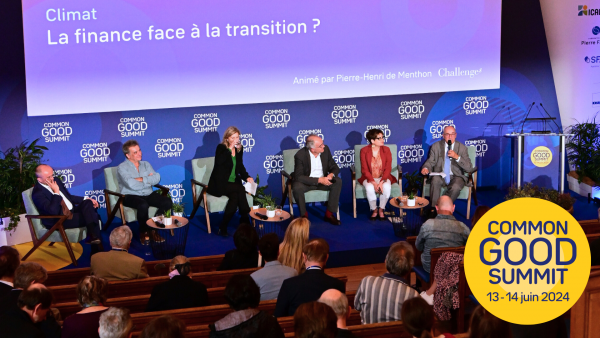
This debate took place as part of the fourth edition of the Summit of the Common Good, organised jointly by TSE, Challenges and Les Echos-Le Parisien Evénements. On 13 and 14 June 2024, economists, economic decision-makers, representatives of public authorities and civil society came together to reflect on a central question: Who will pay for the common good?
The financing required for the energy transition will be massive, between 3% and 8% of global GDP according to various estimates. But where to find it? Relying on governments, already heavily in debt, would have negative consequences. There is therefore no alternative to turning to the financial markets, which have long demonstrated their ability to finance energy investments and redirect financial flows towards new needs when the economy faces breaking points.
For them to play this role, financial players need to be able to rely on predictability, as well as the definitive and irreversible nature of the transition to net zero. The right incentives need to be given, and a regulatory framework created that sets a clear course for the long term.
The challenge is enormous: because of the lag in awareness of the climate emergency, the transition is being rushed, creating economic and logistical demands and political and social tensions, as we have seen in the agricultural and automotive sectors. Politicians are likely to react with setbacks and concessions when such resistance arises, creating new uncertainties for the financial system.
It is therefore essential for politicians to limit uncertainty and risk, by guaranteeing long-term political credibility with, for example, the creation of an independent energy transition agency to anchor the notion of the irreversibility of the green transition process. In the absence of such clear institutional frameworks, markets will continue to be marked by reversals of sentiment regarding the green transition.
Article published in Challenges in June 2024
© Anaëlle Raguet © Franck Foucha




